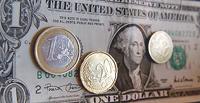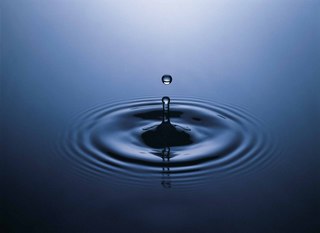It is the only source that can provide a chance for economic breakthrough
Published:
21 March 2005 y., Monday
Money from Russia’s Stabilisation Fund is expected to be invested abroad in dollar-nominated securities, with minimum investment risks and minimum profitability at 2-4%. These funds have until now been kept in Central Bank accounts. This means that a great deal of money will soon appear on the financial markets. On February 1, 2005, the Fund totaled 647.2 billion roubles ($23.1 billion), which mostly came from taxes on oil sales with prices exceeding $20 per barrel and export duties from oil companies.
The crucial question is how this money should be used. Money can only be taken out of the Fund when it has more than 500 billion roubles. Therefore, more than a fifth of its resources can already be used. This is a key issue for Russia’s economy, as the positive overseas market situation in recent years has been almost exclusively responsible for its growth.
However, experts are not tired of repeating that the potential of the resource-oriented Russian economy has been virtually exhausted. The mechanism whereby "we produce oil, sell it and enjoy the benefits" is becoming increasingly less effective. The country is now at a stage when it must introduce an industrial policy. However, any policy only makes sense when there is money to implement it.
Russia’s stock market and banking system do not provide the necessary financing for the real sector of the economy. Direct foreign investment in Russia remains at a very low level, while foreign investment in general is concentrated on either the import of equipment or foreign borrowings. The country obviously needs sources for further growth. The Stabilisation Fund is virtually the only potential source today and a genuine war is being waged for its funds.
Šaltinis:
financialexpress.com
Copying, publishing, announcing any information from the News.lt portal without written permission of News.lt editorial office is prohibited.
The most popular articles
 The European Commission launched "The ocean of tomorrow " call for research proposals. Oceans cover about 70% of the Earth's surface, but human activity is increasing environmental pressure on them.
more »
The European Commission launched "The ocean of tomorrow " call for research proposals. Oceans cover about 70% of the Earth's surface, but human activity is increasing environmental pressure on them.
more »
 The EBRD is stepping up its support to the real economy in Georgia with new funds for on-lending to local businesses.
more »
The EBRD is stepping up its support to the real economy in Georgia with new funds for on-lending to local businesses.
more »
 Lithuania’s Ambassador to Germany and Special Representative for EU External Relations in the German Foreign Office discussed the situation regarding the decision of private credit insurance company in Germany Euler Hermes to apply the rating of a maximum risk country for Lithuania.
more »
Lithuania’s Ambassador to Germany and Special Representative for EU External Relations in the German Foreign Office discussed the situation regarding the decision of private credit insurance company in Germany Euler Hermes to apply the rating of a maximum risk country for Lithuania.
more »
 Peter Reiniger Business Group Director for Central Europe and the Western Balkans from the European Bank for Reconstruction and Development visited Latvia to sign subordinated loan agreement with Parex banka.
more »
Peter Reiniger Business Group Director for Central Europe and the Western Balkans from the European Bank for Reconstruction and Development visited Latvia to sign subordinated loan agreement with Parex banka.
more »
 The European Commission has approved 16 programmes in 12 Member States to provide information on and to promote agricultural products in the European Union.
more »
The European Commission has approved 16 programmes in 12 Member States to provide information on and to promote agricultural products in the European Union.
more »
 New measures to help farmers through recession as milk prices tumble.
more »
New measures to help farmers through recession as milk prices tumble.
more »
 Federal Reserve Chairman Ben Bernanke said the outlook for the long-suffering U.S. economy appears to be improving.
more »
Federal Reserve Chairman Ben Bernanke said the outlook for the long-suffering U.S. economy appears to be improving.
more »
 The Swiss Government and the EBRD are providing €11.8 million to improve the supply of water to some 1 million people living in Bishkek, the capital of the Kyrgyz Republic.
more »
The Swiss Government and the EBRD are providing €11.8 million to improve the supply of water to some 1 million people living in Bishkek, the capital of the Kyrgyz Republic.
more »
 The Neighbourhood Investment Facility (NIF), a key instrument of the intensified European Neighbourhood Policy (ENP), will benefit in 2009 from a €70 million contribution by the European Commission.
more »
The Neighbourhood Investment Facility (NIF), a key instrument of the intensified European Neighbourhood Policy (ENP), will benefit in 2009 from a €70 million contribution by the European Commission.
more »
 In response to the impact of the global crisis on the Romanian construction sector, the EBRD is supporting Lafarge Ciment (Romania) S.A. with a €20 million loan in Romanian lei to finance the company’s operations and to support its working capital requirements.
more »
In response to the impact of the global crisis on the Romanian construction sector, the EBRD is supporting Lafarge Ciment (Romania) S.A. with a €20 million loan in Romanian lei to finance the company’s operations and to support its working capital requirements.
more »